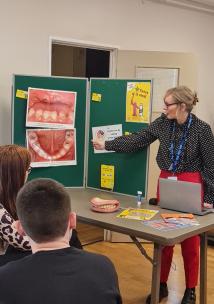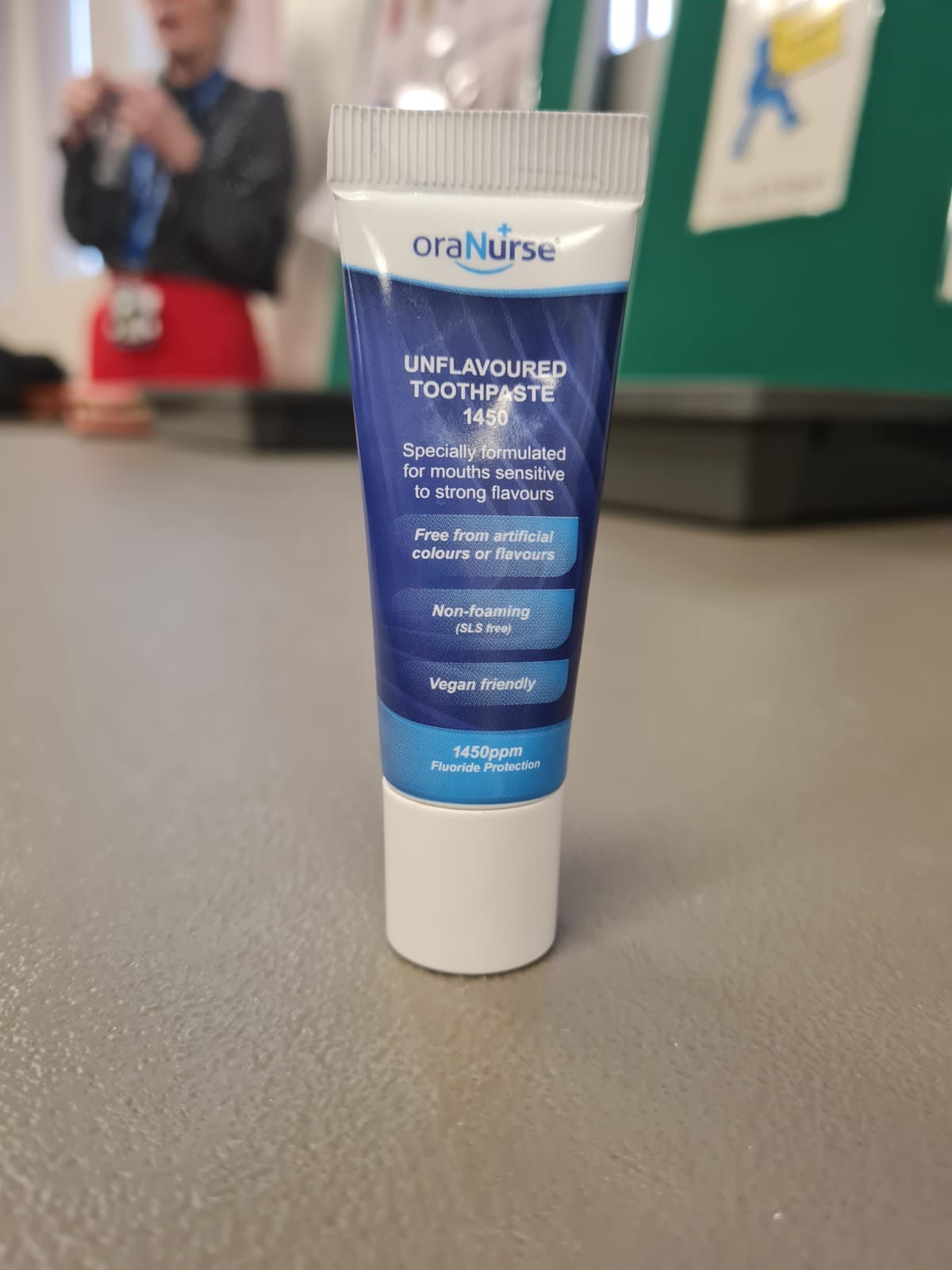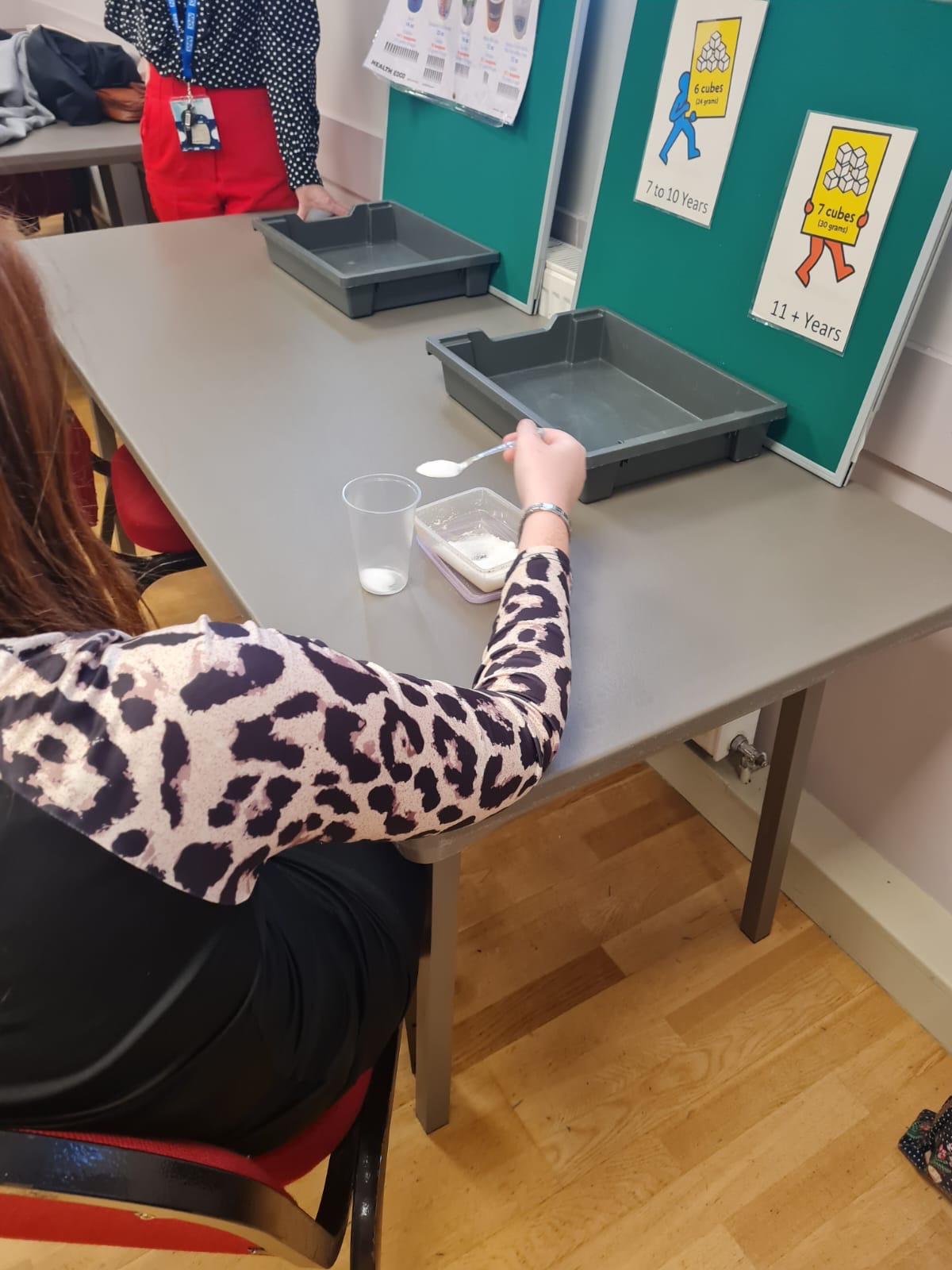Let's talk - Oral health
Leiann Musgrave, the Oral Health Improvement Lead for Rotherham Children’s Public Health Nursing Service, led the small group session with 7 students at the school and talked about the best way to look after your teeth.

This is a summary of the group’s discussions:
Brushing your teeth
Leiann spoke to the group about the importance of brushing their teeth to prevent tooth decay and gum disease. She told them:
- Teeth should be brushed twice a day for 2 minutes, once in the morning and then before bed. It is important to brush your teeth before bed in order to clean off the food that’s been eaten during the day. Any food that isn’t removed from the teeth can cause bacteria which in turn can lead to cavities and tooth decay.
- It is essential that the toothpaste you use contains fluoride as it strengthens teeth and prevents tooth decay. For maximum protection, use a toothpaste containing 1350 to 1500ppm of fluoride. Most ‘own brand’ toothpastes are suitable and more affordable.
- Don’t rinse your mouth after brushing as this removes the fluoride protection - ‘Spit, don’t rinse’!
- You should use a toothbrush with a small head to get in the smaller areas in and between your teeth. It should have medium-texture bristles.
- Make sure all the surfaces of the teeth get brushed, and where the gum meets the tooth (gumline).
- Try to clean your tongue with a soft toothbrush or tongue cleaner once a day.
- Try to use floss or interdental brushes (little brushes) to clean in between your teeth once a day.
- You can use a mouthwash to help keep your gums and teeth healthy, but use it at a different time to brushing.
- If you struggle to remember when to brush your teeth, you can use posters that you can tick off to say you’ve brushed them! This is especially useful for young children!

Handy tip…
For people with sensory issues, a good toothpaste to try is OraNurse as it’s unflavoured and doesn’t foam.
Sugar in food and drinks
To show how much sugar can be in drinks, Leiann got the students to scoop the amount of teaspoons of sugar into a plastic cup. The students were very shocked when they saw how much sugar there was in some drinks!

Did you know….
- A can of Coca Cola contains 9.5 teaspoons of sugar
- A can of energy drink contains 9.5 teaspoons of sugar
- A bottle of whole chocolate milk contains 13 teaspoons of sugar
- A bottle of 100% Orange juice contains 12 teaspoons of sugar
- A Slush contains 14.5 teaspoons of sugar
- A Strawberry Smoothie contains 18 teaspoons of sugar
Leiann told the group that the recommended amount of sugar for young people is:
- 5 teaspoons of sugar for 4-6 year olds
- 6 teaspoons of sugar for 7-10 year olds
- 7 teaspoons of sugar for 11+ years
She advised that the best drink for teeth is water but if you do drink sugary drinks, drinking them through a straw can help avoid too much sugar from coating your teeth. The saliva in our mouths also helps protect teeth from sugar as it helps to wash it away.
The group also discussed what type of foods were harmful to teeth and what types were better. Whilst vegetables are fine, fruit should be eaten in moderation as some fruits are acidic and contain natural sugars which can be harmful to teeth. As Leiann’s demonstration with the sugar showed, smoothies are particularly bad for teeth, even though people think they’re healthy as they’re made of fruit! Interestingly, cheese is one of the better foods to eat as it can help neutralise harmful acids.
Dentists
All of the students were registered with a dentist, but Leiann was able to answer the questions the students had:
- It is important to go to the dentist as they help look after your teeth. Having a check-up can help avoid cavities and the need for fillings.The dentists can also provide a deeper clean than we can give ourselves at home.
- Some dentists will give you a checkup every 6 months, some every 12 months.
- If you have toothache and aren’t registered with a dentist, you can call 111 or go to NHS111 online and they will find a dentist to treat you.
- Signs of dental problems can be pain, swelling, sometimes bleeding and a temperature if there is an infection.
- Although dentists can whiten teeth, it can be expensive and the best way to keep your teeth white is to avoid food and drinks that can cause staining like tea, coffee, orange juice and coca cola.
- If you are aged under 18 (or under 19 and in full time education) you don’t have to pay for dental treatment. Some young people can get free dental treatment until they are 25.
The group were really engaged, polite and interested in what Leiann had to say and asked lots of questions! They were a credit to The Willows School and Leiann thoroughly enjoyed talking to them. Thank you to everyone involved!
More information
Find out how to find an NHS dentist if you need to register for a regular dentist.
If you or your family need urgent dental care, contact your own dentist or another local dental practice. If you cannot get an appointment, call 111 or go online at 111.nhs.uk/
More information about dental costs and exemptions can be found here.